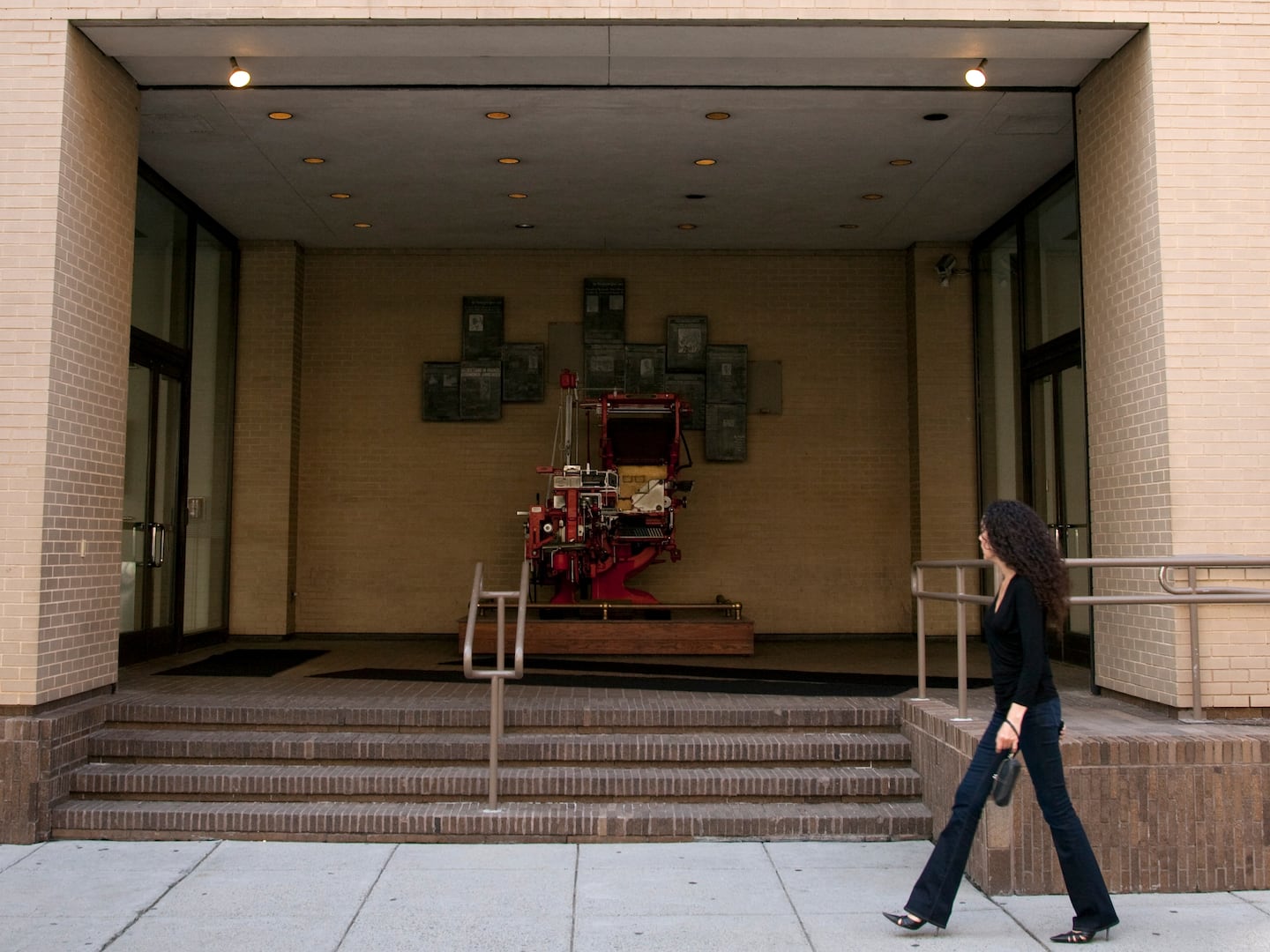If you came across an article yesterday that contained the words “ Justin Bieber” and “ Prime Minister Netanyahu” and “peace summit,” you might be excused for thinking you were reading a script for Spinal Tap 2: The Pop Idol Years.
That’s because the words “Justin Bieber” and “Prime Minister Netanyahu” and “peace summit” should never appear in the same sentence. Justin Bieber’s name should be connected only with things like “music,” “new haircut,” and “girls squealing at the top of their lungs.” And maybe, “saving puppies.”
To review: Justin Bieber is in Israel singing. Which he is very good at. He got there early, touring the Holy Land. But according to the media reports in Israel, Bieber’s People contacted Netanyahu’s People. They would meet. (Why? No one has any idea.)
If we believe the reports, Netanyahu’s People conjured up a photo op between schoolchildren from the frequently targeted town of Sderot—which was hit recently by rockets—and the teen idol. The innocent meet-and-greet between pop star and prime minister quickly got political and The Bieber pulled out.
A spokesman for Netanyahu’s peeps told the press: “We were approached by Justin Bieber's people about a meeting with the prime minister and Mr. Netanyahu was open to it. He had an idea, he'd bring a number of youngsters that have a difficult time in bomb shelters over the past few weeks and bring them to an event that would be for them a fun occasion,” while the other side denied that a meeting was ever in the works at all.
The 2,000-year conflict that President Clinton, Jimmy Carter, and The Zohan couldn’t solve wasn’t going to be solved by the world’s most adorable pop star.

Good thing, too, because it seems like the 2,000-year conflict that President Clinton, Jimmy Carter, and The Zohan couldn’t solve wasn’t going to be solved by the world’s most adorable pop star. The Bieb didn’t seem into the attention, either. After being followed around by the paparazzi, he Tweeted: "They should be ashamed of themselves. Take pictures of me eating but not in a place of prayer, ridiculous.” In another Tweet, he wrote: “I want to see this country and all the places I’ve dreamed of and whether its the paps [paparazzi] or being pulled into politics its been frustrating."
To be fair, this was all probably a miscommunication that the media devoured with relish: Said Bill Werde, the editorial director of Billboard, “At the end of the day, no one really knows what went on between Bieber and Netanyahu. It feels like much ado about nothing to me. My general take is that the word ‘summit’ started getting bandied about somewhere, and I think that’s ridiculous,” said Werde. “I don’t think for a second that Justin Bieber or Justin Bieber’s very smart camp ever thought that Justin Bieber was having a summit with Netanyahu. ‘Summit’ implies like G8, let’s discuss economic policy. Everything I’ve read from what Bieber said and what he Tweeted, the kid was just going there to have a spiritual time, and somehow through the worlds of media and politics, it has turned into this giant thing.”
If anyone should be embarrassed, it is not Netanyahu or Bieber, but the press. “It speaks poorly of media.” (We’re ashamed, very ashamed. Please click below and comment.)
This entire incident raises the question, though, how and when did we get to a place where it would be even possible to consider that a teen idol would be having a summit with a prime minister? Does every pop star have to be Bono? (Remember when teen pop stars were pure as the driven snow? Okay, us neither.) Though they haven’t been squeaky clean since the days of Doris, their place in the world used to be more simple. They had one job and one job only: to be dreamy while singing or acting. Of course, 20 or 30 years ago, everything was a little simpler, including the media.
“Twenty years ago, 30 years ago, being a pop star or a music star meant radio play, playing shows, showing up in record stores, and being on a couple of magazines and a few TV screens that were actually interested in music,” said Werde. “ And now you’ve got tens of thousands of screens on 24/7 in hundreds of countries, so the ubiquity of celebrity magnifies everything.”
Bloodthirsty as we are for anything celebrity, we devour those celeb Tweets about touring a Holy Land. Back then, a possible meeting and nonevent between a visiting pop star and a prime minister wouldn't turn into a major story (If there was no Twitter, how did anyone know if Ashton Kutcher punked anyone?). Back then though, if they met with prime ministers, they probably didn’t put out press releases. If Annette Funicello had a favorite cause other than boys and bikinis, we didn’t necessarily know about it. Or perhaps, says Werde, we have selective memories: “I guarantee you that if you look back to the year 2000, which was the great peak of the pinnacle of teen pop—’NSync, Backstreet Boys, Britney Spears, Christina Aguilera—I guarantee if you look at those bands, and you look at what they did, I’m positive that buried in their activities were some really good fundraising efforts."
Maybe, though, we want our pop stars—especially those like Justin Bieber—to remain above the fray. Maybe we just want a corner of the world that doesn’t remind us of what’s going on in the news, cluttering our Twitter feed. We like someone like Bieber because he’s so wholesome and seems so easy and simple; he’s a like a sorbet, a palate cleanser to clear away a long day reading about wars, economic recessions, and nuclear meltdowns.
One thing is certain is that some things never change: If you go to Justinbieberfanblog.com, you will see a lot of comments posted that go something like this: “Heyy Justin. I lvoe you and your music. Trust me I AM NOT one of those obsessive girls that run after your gum and water bottle, ok!” Or: “OMG, If Justin Biebz came on this site,i would scream, than faint, than cry and i think you get it now.”
There’s no mention of the Israeli-Palestine Bieber summit that never happened.
But maybe Bieber should get involved in something that is near to his own heart (just not necessarily the Israeli-Palestine crisis. We're thinking puppies.)
“I think everyone should get involved in politics,” said Werde. “Personally, you look around, it feels like end times. If you’re concerned about the environment, if you are concerned about the treatment of nuclear waste, if you are concerned about education and the arts, if you are concerned about these things. I think it’s a responsibility as a citizen to speak up, and if you have a mass platform to speak up, I think it’s almost your responsibility to use that."
Werde points to Kanye West’s simple, powerful statement—“George Bush doesn’t care about black people"—during the Katrina fundraiser as an example of an artist who had been dismissed as merely a pop star making a bigger impact with his platform. "He vocalized something that a lot of people were feeling and thinking and that’s powerful."
And sometimes, a pop star transforms from a non-political performer, or one who was perceived as vapid and cute, into something else entirely. Lada Gaga's early persona didn't have anything to do with Little Monsters—which is how she now refers to her fans, many of whom are gay or bullied outcasts. Her protests against anti-gay organizations came later, when she put to good use her ability to reach her millions of Twitter followers.
And, don't forget, another classic transformation from pop stars to politicos. As Werde points out: “I don’t want to blaspheme anything here,” he says, “but once upon a time, the Beatles were teenage pop stars.”
Tricia Romano is an award-winning writer who has written about pop culture, style, and celebrity for the New York Times, the Village Voice, Spin, and Radar magazine. She won Best Feature at the Newswomen’s Club of New York Front Page Award for her Village Voice cover story, about sober DJs and promoters in the nightlife industry, " The Sober Bunch."






